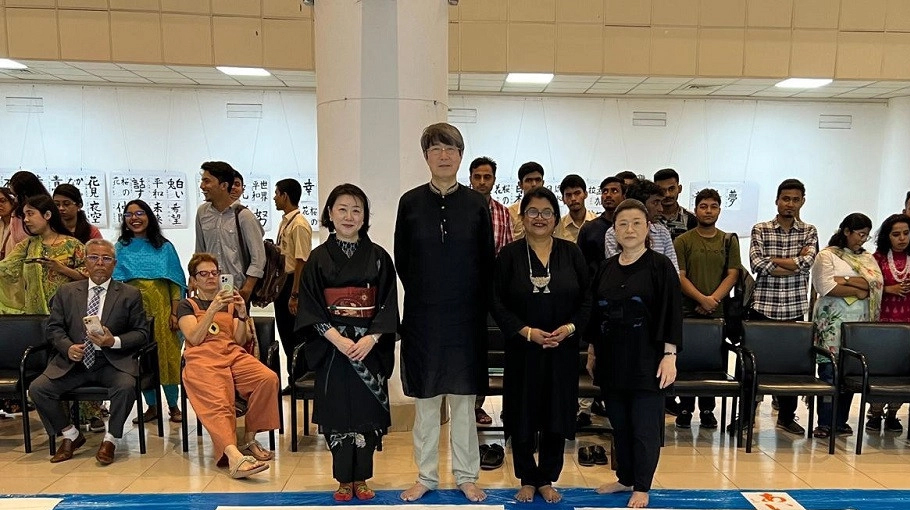UN assures Bangladesh of working together

The United Nations (UN) has commended the government of Bangladesh for its leadership role in global UN initiatives such as early warning for all, transforming education and the Food Systems Summit, which all progressed in 2023.
“The UN’s priorities are fully aligned with the government’s vision, including the essential work needed to prepare for LDC graduation and adapt to climate change," said UN Resident Coordinator in Bangladesh Gwyn Lewis on Sunday.
She said their focus in 2024 is on consolidating joint efforts to deliver programmes at scale and strengthen multistakeholder partnerships that can help the government to unlock vital financing for the SDGs, including for climate action.
"We renew our commitment to working with Bangladesh towards a prosperous, climate-resilient future for all Bangladeshis, with gender equality, human rights and Leave No One Behind principles integrated across all our efforts,” added Lewis.The government of Bangladesh and the United Nations Country Team held a Joint Steering Committee (JSC) meeting to launch the 2023 UN Country Results Report and discuss 2024 priorities for implementing the UN Sustainable Development Cooperation Framework (Cooperation Framework).
Looking ahead to 2024 and beyond, the JSC reviewed the opportunities presented by the Summit of the Future and six key transitions to accelerate the Sustainable Development Goals (SDGs), highlighting the importance of integrated policy, financing and programming at scale, with a focus on Leaving No One Behind.
The bi-annual meeting was co-chaired by Md. Shahriar Kader Siddiky, Secretary of the Economic Relations Division (ERD), Ministry of Finance, and UN Resident Coordinator in
Bangladesh Gwyn Lewis with the participation of line ministries and UN agencies.
The Cooperation Framework covers the period 2022-2026 and outlines United Nations support to Bangladesh to advance the Sustainable Development Goals (SDGs) and achieve the objectives of the 8th Five-Year Plan across five strategic priorities: inclusive and sustainable economic development; equitable human development and well being; sustainable, healthy and resilient environment; transformative, participatory and inclusive governance and gender equality and eliminating gender-based violence.
The 2023 Results Report shows how the United Nations delivered $219 million in development programming under the Cooperation Framework in 2023.
Highlights included 28 million people reached with digital financial services, 250,000 marginalized children reached with remedial education, 268,491 cases resolved through UN-supported village courts, support to 267,600 survivors of gender-based violence, and 3.5 million people assisted to build urban resilience.
The UN also worked to support preparations for Bangladesh’s graduation from Least Developed Country (LDC) status, and to support job creation and labour sector reforms, health and education, climate adaptation and disaster risk management, with gender equality as a key cross-cutting issue.
UN agencies presented policy and programming priorities for the United Nations in 2024 across the five strategic priorities, with a special focus on climate and environment.
“We express our gratitude to the United Nations for providing today's comprehensive review of the accomplishments in 2023 and engaging in a productive dialogue regarding development priorities for the upcoming year," said Siddiky.
As Bangladesh progresses towards LDC graduation and lays the groundwork for the 9th Fiveyear Plan, he said they anticipate sustaining our collaborative efforts with the UN, fostering a deepened partnership that includes active involvement in the Summit of the Future.
"Climate action and adaptation remain paramount for Bangladesh, and we deeply appreciate the UN's dedicated support to the country to further strengthen our endeavors in this crucial area,” he added.
The next meeting of the JSC will be held in November 2024.





